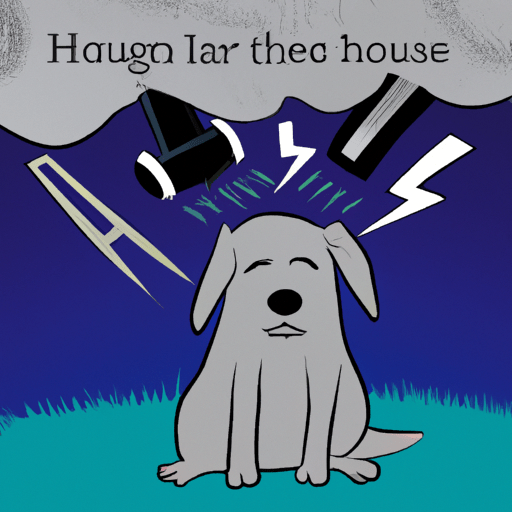As a caregiver to a beloved canine companion, you’ve undoubtedly noticed that certain sounds seem to cause distress or discomfort for your pet. Whether it’s the wail of a siren, the beep of a microwave, or the ominous rumble of thunder, there are certain noises that dogs just seem to detest. Let’s take a deeper dive into understanding what sounds dogs hate and why these particular noises may be causing such a strong reaction.
Table of Contents
1. The Science Behind a Dog’s Hearing
2. Top Sounds That Dogs Dislike
3. How to Help Your Dog Cope with Unpleasant Noises
4. Frequently Asked Questions
Key Takeaways
* Dogs have a much broader range of hearing than humans, making them more sensitive to certain sounds.
* High-pitched sounds, certain electronic noises, and loud, sudden sounds are generally disliked by dogs.
* Training, positive reinforcement, and creating a safe space can all help your dog cope with unpleasant sounds.
The Science Behind a Dog’s Hearing
Dogs have an incredibly advanced sense of hearing, far superior to our own. They can hear a much broader range of frequencies, from about 40 Hz to 60,000 Hz, while humans can only hear between 20 Hz and 20,000 Hz. This means that dogs can hear sounds we can’t even detect.
Not only do dogs hear a wider range of sounds, but they can also hear them at a much greater distance. They can pick up sounds approximately four times farther away than we can. This superior hearing ability is a leftover trait from their wild ancestors, who needed sharp hearing for hunting and survival.
Top Sounds That Dogs Dislike
The following are some of the most common sounds that dogs tend to dislike:
1. High-Pitched Sounds: Dogs dislike high-pitched sounds such as sirens, fire alarms, or even certain musical instruments. The frequency of these sounds can be uncomfortable for dogs and might even cause them physical pain.
2. Electronic Beeps: Many dogs seem to have a particular aversion to electronic beeping noises, like those made by microwaves, smoke detectors, or digital alarm clocks. The high frequency and sudden onset of these sounds can be startling and disconcerting for dogs.
3. Loud, Sudden Sounds: Dogs are typically frightened by sudden, loud noises, such as fireworks, thunder, or the bang of a slammed door. These sounds can be perceived as threats, triggering a fear response in dogs.
For more detailed information about the sounds that dogs hate, check out this informative article on Sound Sensitivity in Dogs.
How to Help Your Dog Cope with Unpleasant Noises
Helping your dog cope with sounds they hate involves understanding their fear and providing them with a safe and secure environment. Here are some strategies:
1. Create a Safe Space: Make a quiet area in your home where your dog can retreat when they’re feeling scared. This might be a crate, a certain room, or a comfortable bed in a quiet corner.
2. Train Your Dog to Associate the Sound with Positive Things: This can be done using treats, toys, or praise to create a positive association with the noise.
3. Consider Using Calming Products: There are a variety of products available that can help calm a dog’s anxiety, such as calming collars, diffusers, or even certain types of music specifically designed to soothe dogs.
For more tips on how to comfort a scared dog, check out this useful resource.
Frequently Asked Questions
1. Why does my dog hate the vacuum cleaner?
Vacuum cleaners emit a high frequency noise that can be irritating or even painful for dogs. In addition, the sudden, loud noise and movement of the vacuum can be alarming for dogs.
2. Are there any specific breeds that are more sensitive to noise?
While all dogs have sensitive hearing, some breeds, like herding dogs and gun dogs, can be more noise-sensitive due to their breeding.
3. Can dogs get used to unpleasant sounds?
Yes, with patience and positive reinforcement, dogs can become desensitized to certain noises. However, this process takes time and should be done very gradually.
For more FAQs about dogs and sound sensitivity, visit One Top Dog.
Understanding what sounds dogs hate and why can help you provide a more comfortable and less stressful environment for your furry friend. Remember, patience and understanding are key when helping your dog navigate their world, which is full of sounds that we, as humans, may not even notice.
Whether it’s understanding their fear of thunderstorms or learning how to comfort them during fireworks, gaining insight into your dog’s auditory dislikes can significantly improve their quality of life.
Remember, every dog is an individual, and what might bother one might not bother another. Pay attention to your dog’s signals, and always consult with a veterinarian or a professional dog behaviorist if you have concerns about your dog’s reaction to certain sounds.



